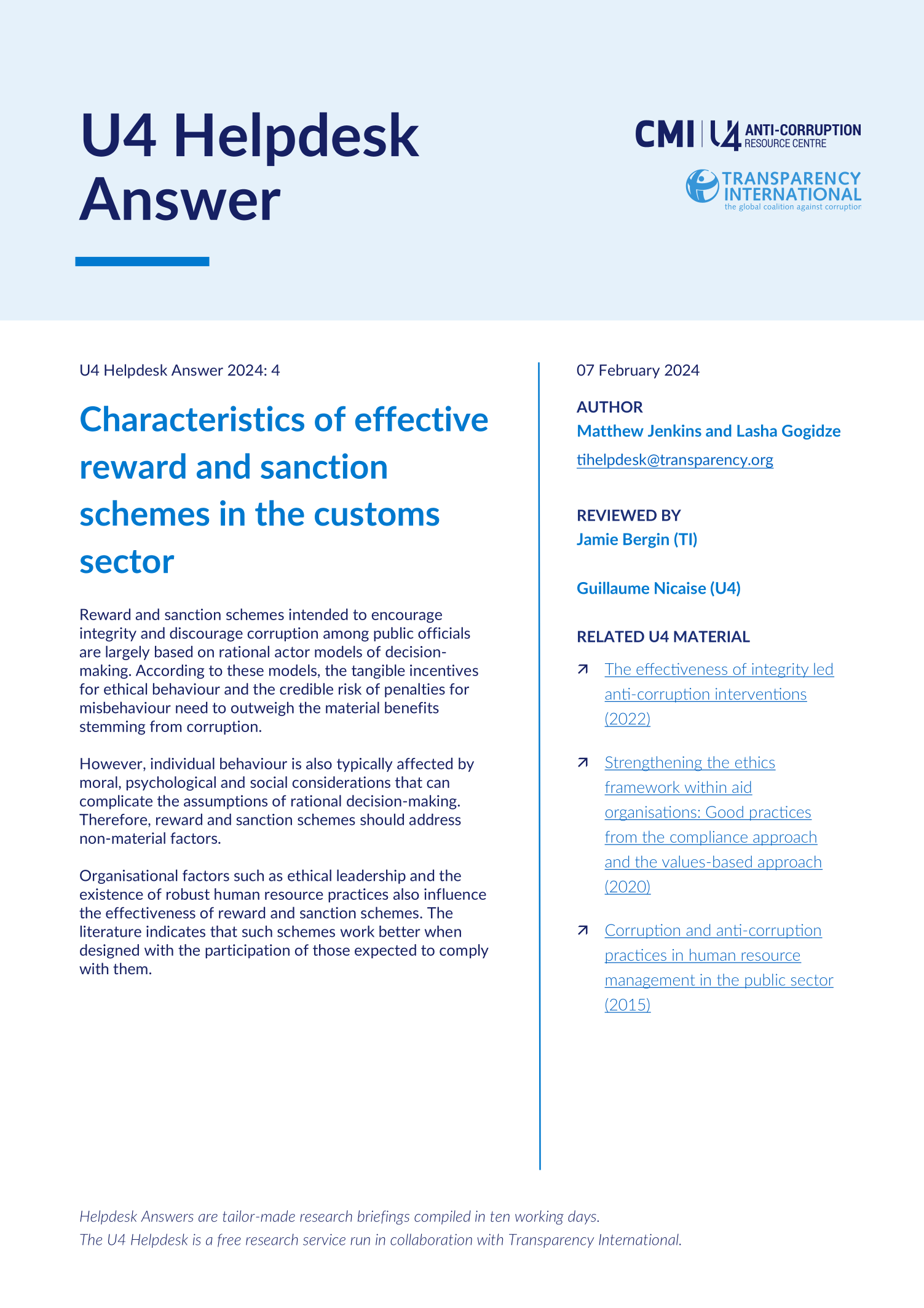Main points
- When used proportionally and in a consistent and complementary manner, reward and sanction schemes can effectively deter corruption in public administration
- In some corruption prone sectors, such as customs, financial incentives can act as a key determinant of the behaviour of customs officers and their clients alike. Therefore, financial rewards for ethical behaviour as well as administrative penalties, such as fines for misbehaviour, can act as a counterweight to the potential illicit gains stemming from corrupt deals
- Yet financial rewards and penalties alone are often insufficient to outweigh the lure of dirty money. Fortunately, moral, psychological and social factors are also important drivers of behaviour
- As such, the effectiveness of reward and sanction schemes may be heightened where they are aligned with individuals’ non-financial motives, such as professional pride and recognition through integrity awards, or ‘deterrence nudges’, such as warnings about the probability of detection and sanction
- For reward and sanction schemes to ensure convergence between employees’ personal integrity standards and expectations, and those of the organisation, they should thus be integrated into a broader internal affairs and human resources management system, characterised by high degrees of transparency, accountability and impartiality
- Moreover, robust procedures should be established to apply rewards and sanctions in an impartial manner, with care taken to avoid the perception of unfairness and the emergence of perverse incentives



